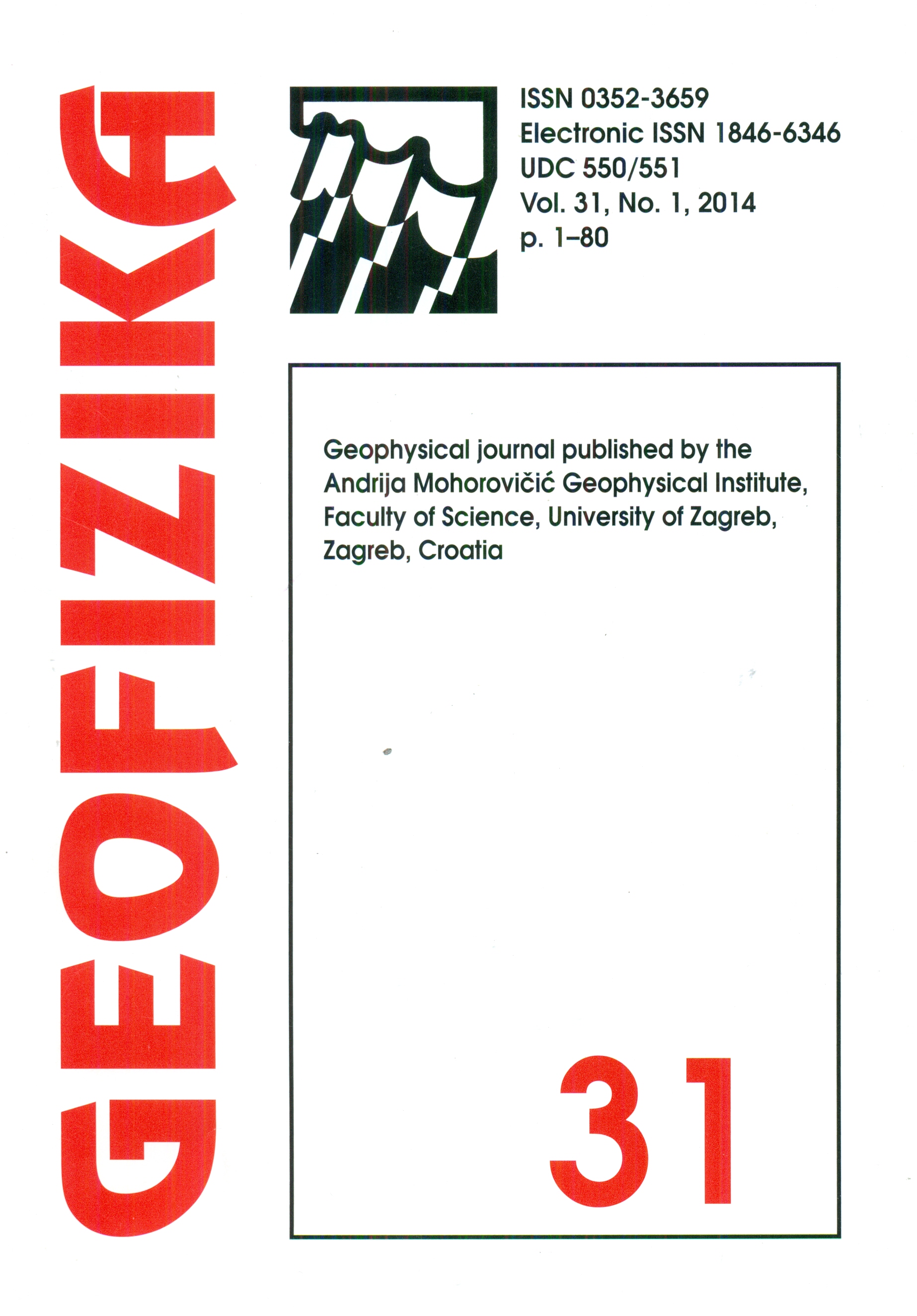Intra-seasonal variability of cloud amount over the Indian subcontinent during the monsoon season as observed by TRMM precipitation radar
DOI:
https://doi.org/10.15233/gfz.2014.31.2Keywords:
intra-seasonal variability, TRMM Precipitation Radar, Indian summer monsoon, active break phases, convective cloud, stratiform cloud, heatsource, heat sinkAbstract
The intra-seasonal variability of the Indian summer monsoon, which manifests in the form of “active” and “break” phases in rainfall, is investigated with respect to the variability of the convective and stratiform precipitating cloud pattern over the region. Long period data from TRMM PR satellite (2A23 and 3B42 datasets) for the monsoon season of 2002 to 2010 over the Indian subcontinent is used for this purpose. The study reveals that the most significant spatial variation in convective and stratiform cloud amount in relation to the active and break phase occurs over the monsoon trough region in central India. The active phase is characterized by positive convective (~5%) and stratiform (~20%) precipitating cloud anomalies over this region. However, the maximum of the former precedes the latter by 1–2 days leading up to the active phase, indicating that the stratiform build up, is due to the gradual organization of the convective cloud systems over the region. The days leading up to the break phase are marked by negative anomalies in the convective and stratiform fractions of cloudiness over this region, which are in phase with each other, unlike the lead-up to the active phase. Analysis of the pattern of atmospheric heat source and sinks over the region from the NCEP–NCAR re-analysis data indicates that the engine for the growth/decay of convection over the monsoon trough region lies primarily in the Bay of Bengal and adjacent east India. The active phase is preceded by a heating pattern that promotes large scale, organized convective cloud growth over the Bay of Bengal preceding the actual onset, while the heating pattern leading up to the break phase promotes the formation of isolated convective clouds and decay of cloud organization over the monsoon trough region.
Downloads
Published
Issue
Section
License
Copyright (c) 2021 Geofizika journal

This work is licensed under a Creative Commons Attribution-NonCommercial 4.0 International License.

